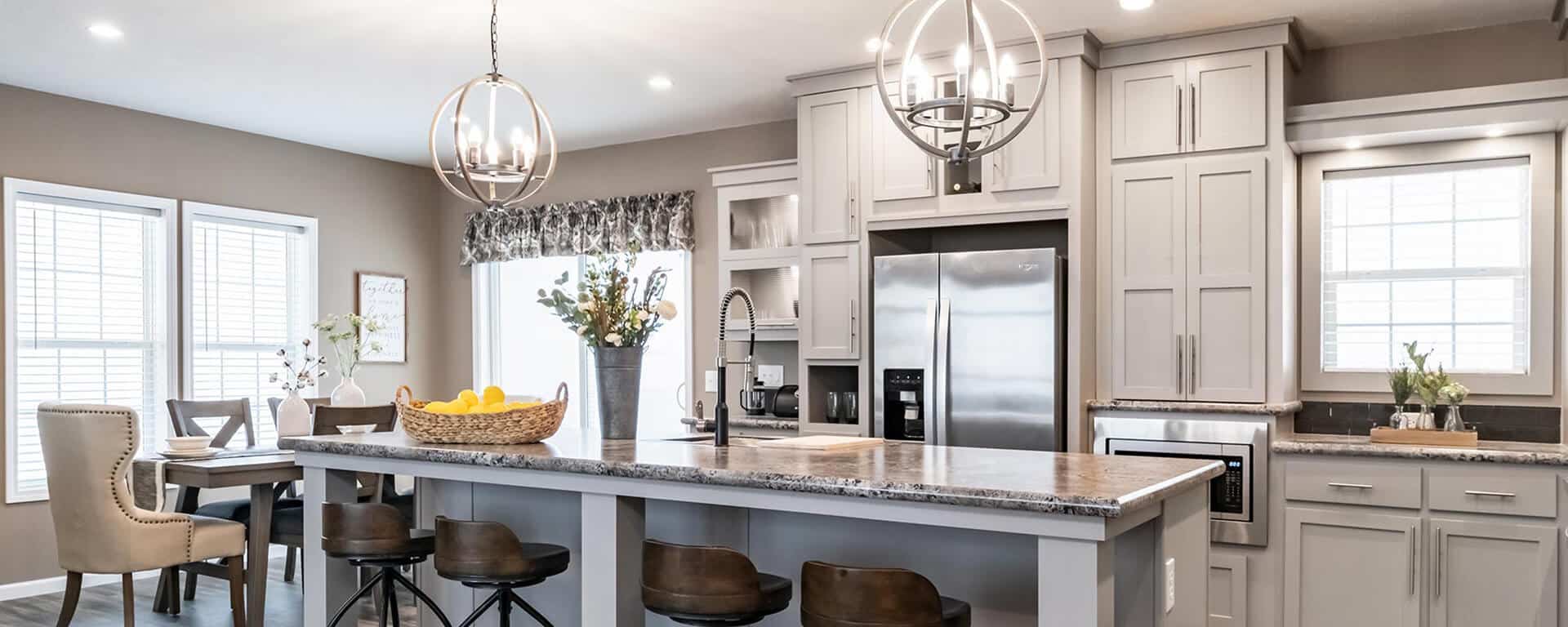10 Hidden Costs When Buying A Manufactured Home
Smartsites webuser
november 14, 2024

When buying a manufactured home, many focus on the home’s sticker price, but there are often hidden costs of buying a manufactured home that can surprise new buyers. These extra expenses add up quickly, so understanding them can help you budget effectively and avoid unexpected financial strain.
Land Costs
One of the most significant costs associated with buying a manufactured home is the land. Unless you already own property, you’ll need to either buy land or lease a lot in a manufactured home community. Leasing a lot can be more affordable, but it comes with a monthly rent that varies depending on the community and location. If you choose to buy land, the upfront cost will be higher, but you won’t have monthly lot rent.
Installation and Site Preparation
Unlike traditional homes, manufactured homes need to be transported and installed, which comes with additional expenses. Site preparation may involve leveling the land, installing utilities, and securing permits. You might also need to clear the area of trees or rocks, depending on your chosen site.
The cost of transporting and installing the home can vary based on the distance, type of foundation, and complexity of the setup. You’ll want to check with your dealer to understand what’s included in the price and what’s considered extra.
Foundation Costs
- Manufactured homes need a foundation, and the type of foundation you choose will impact the cost. The three most common foundation types are:
- Concrete slab: A basic and affordable option.
- Crawl space: Provides some elevation and easy access to utilities.
- Basement: Adds significant cost but offers extra living or storage space.
Each type has different benefits and costs, so consider which foundation best fits your needs and budget. Be sure to factor foundation costs into your planning, as they’re often not included in the home’s purchase price.
Utility Hookups
Installing utilities—such as water, sewer, gas, and electricity—can be a significant expense for manufactured homeowners. If you’re placing the home on a private lot, you may need to dig a well, install a septic system, and connect to electrical lines. Each of these utilities requires permits and professional installation.
Utility hookup costs vary by region and property location. On leased land, the manufactured home community may handle these installations, so ask the management for a cost breakdown.
Permit Fees and Zoning
Many areas have zoning requirements for manufactured homes, which may restrict where you can place the home or require permits. Permit costs vary by location and can include fees for building, electrical, plumbing, and other inspections.
It’s essential to check with your local planning and zoning office to understand the permits you need and the associated fees. Ignoring permit requirements can lead to fines and delays, so factor this cost into your budget from the start.
Property Taxes
Property taxes on manufactured homes vary depending on whether you own the land. If you own the land, you’ll pay property taxes similar to traditional homeowners. For those leasing land in a manufactured home community, you might only be responsible for personal property tax on the home itself.
Be sure to research the tax obligations for manufactured homes in your area. Knowing your annual property tax rate will help you understand how it fits into your overall housing budget.
Homeowners Insurance
Like any home, a manufactured home requires insurance to protect against damage, theft, and liability. Manufactured home insurance is often more affordable than traditional homeowners insurance, but the cost depends on factors like location, home value, and desired coverage level.
Some lenders may also require additional coverage, such as flood insurance if the home is in a high-risk area. Take the time to shop around for policies that fit your needs, as insurance can add a notable monthly cost to homeownership.
Maintenance and Repairs
Maintenance and repairs are essential parts of owning a manufactured home. Some items, like skirting and tie-downs, require regular upkeep, especially in extreme weather. Over time, you may need to repair the roof, replace siding, or address issues with plumbing and electrical systems.
Since manufactured homes are built differently from traditional homes, certain repairs may require specialized parts or contractors familiar with manufactured home construction. Setting aside an emergency fund for repairs can help you manage these costs without stress.
HOA and Community Fees
If you’re buying a manufactured home within a community, there may be homeowners association (HOA) or community fees. These fees cover maintenance of shared amenities, like parks, swimming pools, and clubhouses, and they vary by community. Some communities also charge fees for services like garbage collection or landscaping.
Community fees may feel like an extra expense, but they often come with valuable perks and amenities. Ask for a detailed list of community fees and services provided to get a complete picture of your monthly costs.
Moving and Set-Up Costs
Once you’ve purchased your manufactured home, you’ll need to factor in the cost of moving and setting up the home. Moving a manufactured home involves not only transport but also hiring a professional crew to ensure it’s set up safely and securely.
Depending on the distance and complexity of the move, transportation can be pricey. Be sure to get a detailed quote from your moving company and verify what’s included in the fee.
Making Informed Homeownership Choices
Buying a manufactured home provides a flexible, affordable path to homeownership. However, understanding all potential costs helps you budget effectively and avoid surprises. From land fees and installation charges to utilities and ongoing upkeep, each expense plays a role in the overall investment. Factoring in these costs upfront enables a smooth transition into your new home.
At Ignite MHC, we’re dedicated to making your home-buying experience clear and straightforward. Our knowledgeable team guides you through each step, from selecting the right community to understanding the costs tied to manufactured homes. Whether you’re buying or leasing land, handling permits, or setting up utilities, we offer the support you need to make informed decisions. Contact us today to explore our communities and find a home that fits your lifestyle and budget.
